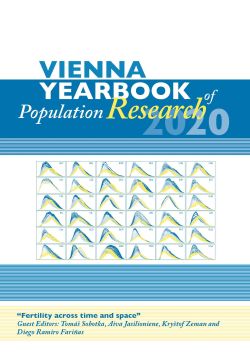
Vienna Yearbook of Population Research 2020, pp. 39-42, 2020/07/30
Fertility across time and space

Gender equality and equity (or the lack thereof) is a common thread running through the context of childbearing across diverse global settings. This article examines how the values and attitudes of younger generations, particularly Millennials and Gen Z, could reframe gender equity and influence future fertility trends. Using examples from around the world, the article highlights how gendered inequalities are often perpetuated through intergenerational transmission of norms and expectations. Older generations with more power impose traditional gender roles on younger women. However, surveys suggest younger people are adopting more gender-egalitarian views compared to their parents and grandparents, even in traditionally patriarchal societies. The key question posed is whether younger generations will reflect on their frustrations under "compressed modernity" - the rapid social and economic change - and work to "free" the next generation from gendered obligations. If they develop a new reproductive contract based on equity, it could have a dramatic impact on future fertility rates by removing a key barrier to the actualization of reproductive preferences. There is, however, the possibility that the progressive views of youth may become distorted as they make choices to conform to entrenched cultural norms. Achieving true gender equality and equity will require a profound shift in attitudes and a willingness to share power across generations.
Keywords: Fertility; Gender; Japan; Compressed modernity; Gen Z; Millennials; East Asia; Gender inequality